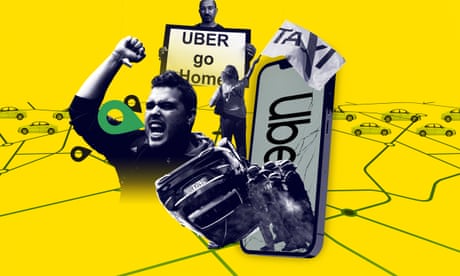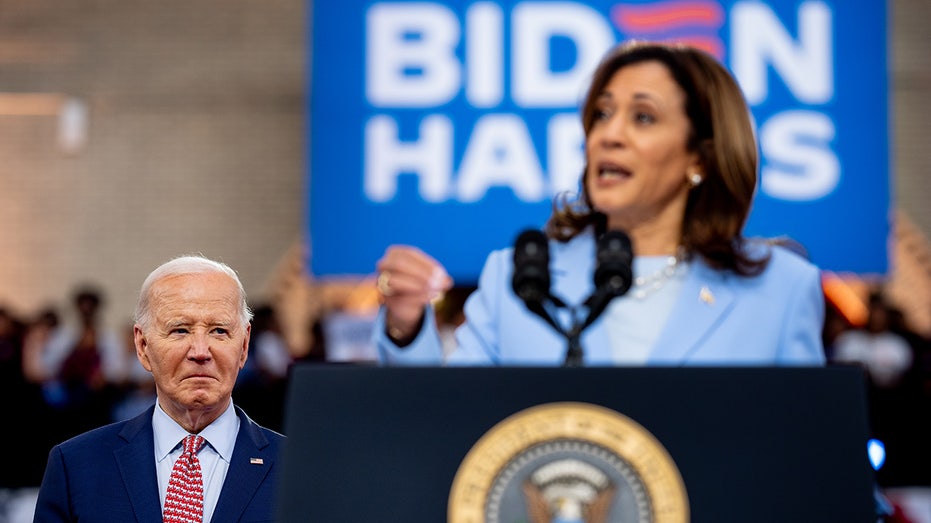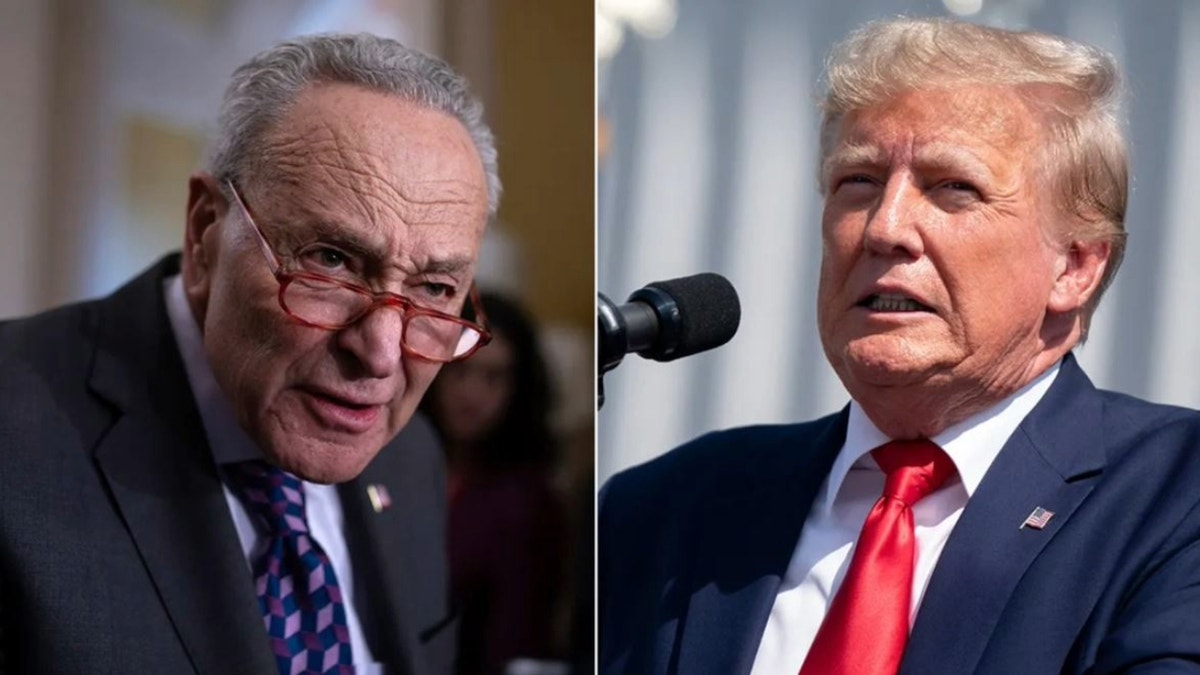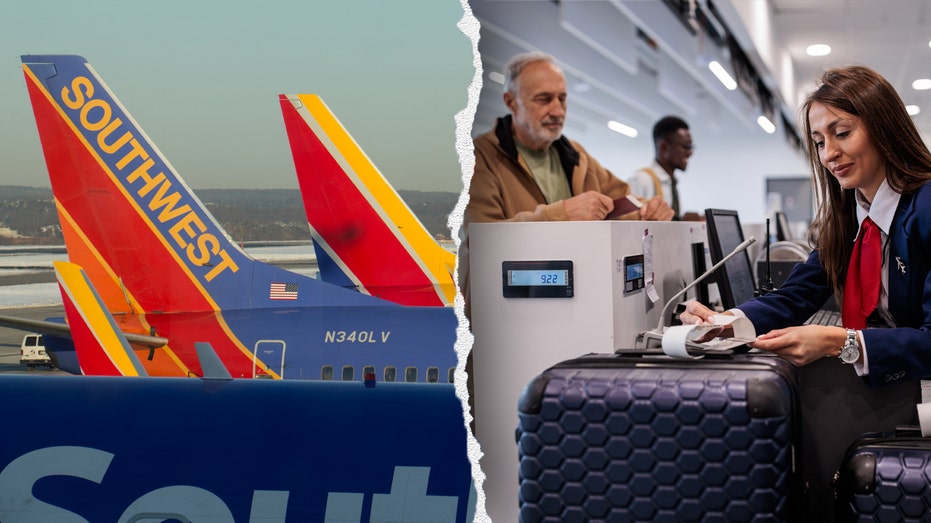- by foxnews
- 14 Mar 2025
‘Violence guarantees success’: how Uber exploited taxi protests
‘Violence guarantees success’: how Uber exploited taxi protests
- by theguardian
- 11 Jul 2022
- in news

On 26 January 2016, more than 2,100 furious French taxi drivers, backed by colleagues from Belgium, Spain and Italy, staged a mass anti-Uber protest in and around Paris, blocking the ring road and reducing the city centre to gridlock.
Plumes of smoke from burning tyres rose into the air. As tempers flared outside the blockaded Orly airport, someone got hit by a minibus. Nearly two dozen cab drivers were arrested for offences from assault to arson.
In Lille, an Uber driver was punched in the face after he dropped off a client - or "rider" as the company calls them - at a hotel. Similar violent incidents took place in Toulouse, Marseille and Aix-en-Provence.
After midnight, an Uber manager in France filed a situation report. "Team - all safe. Drivers/riders - generally safe, though 53 incidents so far including 35 involving a rider," he wrote. "Three relatively serious cases involving taxi violence including one badly damaged car and two beaten-up drivers."
The "team" - Uber's direct employees - were, indeed, safe. They had been told to avoid displaying Uber "swag" in public and to work outside of the office during the protest, with operations run from a remote emergency situation room. With the strike set to persist for a second day, "lots of security" had been hired, the French manager assured HQ.
Uber's drivers, though, did not have that kind of protection. Within hours, they would be back on the frontline of France's taxi wars. Uber did not count them as employees.
According to the Uber files, some at the company appear to have seen an upside in the attacks against drivers. When attacks occurred, Uber moved swiftly to leverage the violence in a campaign to pressure governments to rewrite laws that stymied Uber's chances of expansion.
It was a playbook repeated in Italy, Belgium, the Netherlands, Spain and Switzerland, but it was perhaps most evident in France. Before dawn in Europe on 29 January, the Uber chief executive, Travis Kalanick, was messaging on how best to respond to the chaos in Paris.
Whetstone added that taxi drivers' unions were "being taken over by far right spoiling for a fight". "One to think through," she said. MacGann chipped in, suggesting the French team would "look at effective civil disobedience and at the same time keep folks safe".
Kalanick's startlingly frank reply suggested he thought any further trouble could benefit Uber in its continuing battle with the French government. "If we have 50,000 riders they won't and can't do anything," he wrote. "I think it's worth it. Violence guarantee[s] success. And these guys must be resisted, no? Agreed that right place and time must be thought out."
A former senior Uber executive present at that time recalls feeling that Kalanick's instructions were part of a wider strategic push by the company to "weaponise drivers" and support the lobbying push by keeping "the controversy burning".
In a statement, Kalanick's spokesperson questioned the authenticity of some documents. She said Kalanick "never suggested that Uber should take advantage of violence at the expense of driver safety" and any suggestion that he was involved in such activity would be completely false.
After the Kalanick message, an Uber team in Europe began preparing an action plan for the following week. Drivers were urged to sign Uber-organised letters to the French president and prime minister to save their jobs; a mass petition of passengers was organised in defence of cheap rides.
A demonstration was planned, ostensibly by an independent drivers' association - which was in effect run by Uber. Behind the scenes, the cab-hailing app's executives fixed the time and place of the demo and wrote a full-page manifesto in the French media. News reports suggest only a few hundred drivers showed up.
Violence against Uber's drivers and clients was by no means unique to France. The company often launched in new markets in violation of local regulations, using billions of dollars of venture capital to fund huge subsidies that undercut local traditional taxis, provoking a furious backlash.
One person who tried to take an Uber after a taxi driver told him he was on strike "had the crap beaten out of him" and needed facial reconstruction surgery. There was "increasing and credible intel of taxi entrapment and ambushing of Uber drivers", MacGann wrote.
Over time, Uber drivers were attacked in dozens of countries and even murdered by taxi drivers in South Africa, Brazil, Colombia and Mexico.
The attacks posed an obvious challenge for Uber, discouraging people from driving for the platform. On the other hand, some at the company seemed to believe it was benefiting Uber. As a senior communications manager in Europe emailed succinctly on 24 August 2015 after violent taxi protests against Uber drivers in Belgium: "Violence in France has led to regulatory momentum."
At times, the script went like this: an Uber driver gets beaten, stabbed or otherwise attacked by taxi drivers; managers in an Uber country office alert national media in hopes of free anti-taxi publicity; lobbyists exploit the incident to secure meetings with ministers and government officials and promote favourable legislation.
Similarly, after a Belgian Uber driver's car was attacked by taxi drivers and its side mirror smashed, one of the company's senior in-house lobbyists urged colleagues: "We need to use this in our favour."A similar approach was adopted in the Netherlands in March 2015 when masked men, reported to be angry taxi drivers, turned on Uber drivers with knuckle-dusters and a hammer. Uber staffers exchanged emails on a strategy to make use of the violence to win concessions from the Dutch government.
Driver victims were encouraged to file police reports, which were shared with De Telegraaf, the leading Dutch daily newspaper. They "will be published without our fingerprint on the front page tomorrow", one manager wrote on 16 March.
The documents suggest executives were willing to let the violence continue for a while to build pressure on the government before the company presented a plan to allow it to temporarily bypass regulations. "We keep the violence narrative going for a few days, before we offer the solution," the manager wrote.
When that narrative materialised in the Dutch press, MacGann replied: "Excellent work. This is exactly what we wanted and the timing is perfect." Forwarding subsequent news coverage to other executives, he remarked: "Step one in the campaign, get the media to talk about taxi violence against."
David Plouffe, a former campaign manager to Barack Obama who was then Uber's vice-president of policy, was upfront about the company's expectations on a trip to Cairo to defuse growing hostility to the platform there in 2016. "We've seen some violence around the world," he said. "But that usually ends up expediting regulatory reform with the government."
Lawyers for Whetstone stressed that she never condoned putting drivers at risk of violence. They said no Uber officials working under Whetstone sought to exploit violence against drivers, and she never oversaw such a policy. One of the incidents referred to occurred after she left the company.
"I joined Uber in 2015 because I loved the service, and believed in the promise of flexible work for drivers," Whetstone said. "I consistently pushed back on Uber's more aggressive business practices - which were established well before my arrival - with some success but resigned after 18 months due to significant, ongoing concerns about the company's culture."
MacGann said in a statement: "There is no excuse for how the company played with people's lives. I am disgusted and ashamed that I was a party to the trivialisation of such violence."
Kalanick's spokesperson said any accusation he "directed, engaged in, or was involved in" taking advantage of violence against drivers was completely false.
Uber's spokesperson acknowledged past mistakes in the company's treatment of drivers. But she said no one, including Kalanick, wanted violence against Uber drivers."There is much our former CEO said nearly a decade ago that we would certainly not condone today," she said. "But one thing we do know and feel strongly about is that no one at Uber has ever been happy about violence against a driver."
She added that soon after succeeding Kalanick in 2017, Uber's current chief executive, Dara Khosrowshahi, made safety one of the company's top priorities.
- by foxnews
- descember 09, 2016
Southwest flyers fire back over airline ending free checked bag policy: 'Nail in the coffin'
Southwest has customers sounding off after the airline announced an end to its checked bag policy, leading some flyers to say they'll "boycott" the airline.
read more


